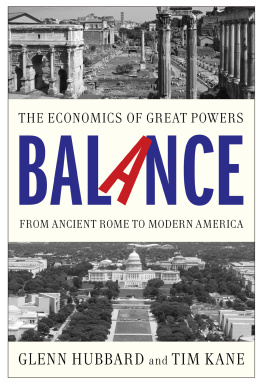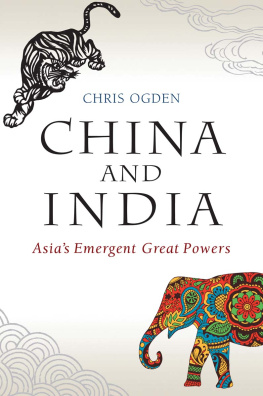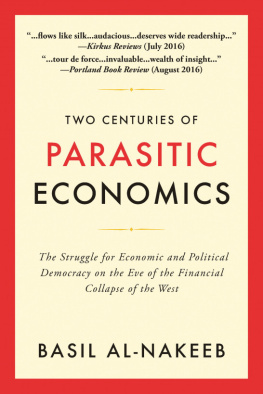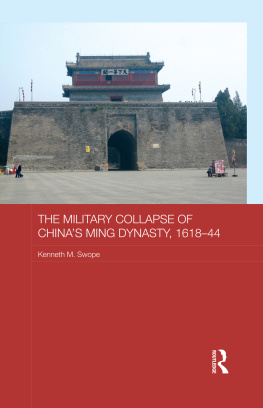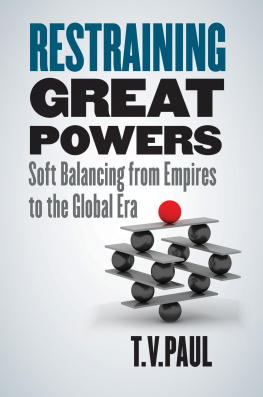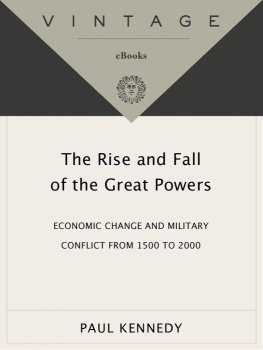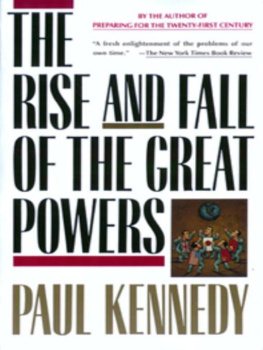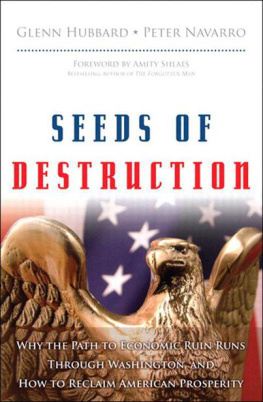PRAISE FOR BALANCE
A book with riveting historical perspective for careful thought aboutwhere we are and where we can go if we get it right.
George P. Shultz
Hubbard and Kane synthesize economics, politics, and psychology to developa new audacious theory of why countries decline. Compulsory readingfor anyone who wants to understand the major issues that America nowfaces and whether decline can be averted, or will instead become inevitable.
James Robinson, coauthor of Why Nations Fail
In seeking to discover what might be common factors throughout historyto explain the rise and decline of powerful states, Hubbard and Kane havesucceeded in identifying surprisingly similar trajectories. Their thoughtprovokinganalysis has compelling relevance for Americas future.
Henry A. Kissinger
The history of economic folly that they skillfully recount in Balance is atimely reminder that societies that seem invincible are often anything but.
The Wall Street Journal
Political paralysis leading to fiscal collapse is the existential threat facingAmerica, argues this stimulating, contentious economic history.... Theirsis political economy with a grand historical sweepand provocative implicationsfor the present.
Publishers Weekly
Dealing with big ideas and important concepts, Balance is engagingly andaccessibly told, for anyone with basic third grade arithmetic can follow theimportant numbers. Balance merits the widest audience.Stephen E. Roulac, New York Journal of Books Offers some policy proposals that ought to be taken seriously, even bythose who dont agree with all their premises. At the very least, some ofthese ideas could be used as blueprints for the rare politician seeking someacceptable grounds for compromise.
Time.com
A readable, data-rich history of the fall of great powers through the eyesof two fiscally troubled US conservatives in 2013.
Financial Times
[A] rapid romp through imperial history.... The authors argue persuasivelythat the decay [of nations] typically starts long before [an externalmilitary] event and usually originates with some internal change.
Foreign Affairs
Thank you for downloading this Simon & Schuster eBook.
Join our mailing list and get updates on new releases, deals, bonus content and other great books from Simon & Schuster.
C LICK H ERE T O S IGN U P
or visit us online to sign up at
eBookNews.SimonandSchuster.com


CONTENTS
Dedicated to our families and our nations future.

ACKNOWLEDGMENTS
I n preparing this book, we have received assistance from many quarters. Our agent, Andrew Wylie, was instrumental in encouraging us to imagine the book in the first place, and we were fortunate to have the team at Simon & Schuster, led by editor Ben Loehnen, help craft it. Our highest acknowledgment and thanks go to research assistance from Naoko Funatsu, Juliette Ginsberg, Emily Ordun, Tim Marr, Evelyn Smith, and Brad Strang. Wilhelmina Sanford made our collaboration work smoothly by coordinating conversations, meetings, and edits no matter how late in the day we asked for her help.
1
INTRODUCTION
And on the pedestal these words appear:
My name is Ozymandias, King of Kings:
Look on my works, ye mighty, and despair!
Nothing beside remains. Round the decay
Of that colossal wreck, boundless and bare,
The lone and level sands stretch far away.
Percy Bysshe Shelley, from Ozymandias
H uman life one hundred years ago, on the eve of the First World War, was dramatically and measurably worse than it is now. The average annual income of a person in Western Europe was $3,077, and only a thousand dollars higher in England and America.prosperous decades of rule by Augustus, which had followed a century of civil wars, A.D. 13 was the last full year Rome enjoyed before his death. Historians credit Augustus with carving a stable and prosperous empire in the marble of time, a Pax Romana that endured for centuries. Yet Rome did not, perhaps could not, last forever. Three centuries of Roman leaders after Augustus could not cure the relentless stagnation of Roman politics and erosion of its economic vitality. Why?
This book is not about empire, but about economic data and the hard facts of Great Powers in human history. We stand on the shoulders of historians who have perceived this subject matter as a narrative of great leaders, great armies, and great cultures. All were mortal. Thanks to countless scholars, our generation can understand this puzzle better than ever before. What our book aspires to add comes from our peculiar domain of economics, which by nature sees the world in a most unnatural way. We see supply and demand and incentives and constraints in markets not just for goods and services, but also markets for prestige, security, and political power.
A quarter century ago, the Yale historian Paul Kennedy penned an authoritative survey of the deeper forces shaping world affairs, in The Rise and Fall of the Great Powers, which introduced readers to the insight that relative economic strength was the main foundation for military and diplomatic forces that dominate most traditional narratives. The explosion of unparalleled historical data in recent years gives us an opportunity to reexamine the Great Powers.
Consider imperial Rome, which many do now as a unipolar and intellectual forefather of Pax Americana in our time. The popular imagination sees Germanic tribes massed by the thousands on the far side of the Danube River, clanging their battle axes and shields, readying to invade. In the end, we have been told, Great Powers succumb to barbarian hordes. This image echoes through history, as far back as the three hundred Spartans fighting against the Persian armies at the hot gates of Thermopylae, to the noble British resisting the dark continent of fascism, even to our modern struggle against jihadi terrorists. This heroic image must be recognized as an irresistible illusion. Military defeat is, of course, a capstone on the decline of Great Powers, but history errs in confusing symptom with cause. Recoil at the idea that mundane currencies, debt notes, and productivity ratios determine the future. But, at the very least, agree that the truth about the fate of nations is not swords, not plowshares, but a combination of the two.
The Battle of Adrianople on August 9, A.D. 378, is just as good a date as any to mark the turning point in Romes decline and fall. The invading Goths were cornered near the city of Adrianople (located near the modern city of Edirne, Turkey) by Roman forces led personally by Emperor Valens. He wanted to repel the foreigners once and for all. On that day, however, the Romans did more than lose the battle; they were routed. Emperor Valens was killed in battle along with most top officers, tribunes, and soldiers. Romes vulnerability sparked a century of Germanic invasions that pushed further against the imperial border until the great city itself fell.
That account of the battle is more or less correct, but it misses the point. For one, Roman society had been rotting internally, not just for decades, but for centuries, before Valens died in battle. More importantly, that story mistakes why the Goths were fighting in the first place. They were rebelling against their Roman allies, not invading, and only because pillage was their only recourse to starvation. In the year 376, these Gothic tribes were fleeing the Huns and were allowed to settle south of Danube as new allies of the Roman army. But Valens inadequately supplied them with promised land and provisions, then sent them on a death march to a different city, where they were denied entry. It is no surprise the Goths rebelled, but their success proved how weak the empire had become. This chapter of history affirms that the decline of Rome, contra Kennedy, was caused not by imperial overstretch or any kind of external threat. It shows, as does history from ancient empires to modern Europe, that the existential threat to great civilizations is less barbarians at the gates than self-inflicted economic imbalance within.
Next page
